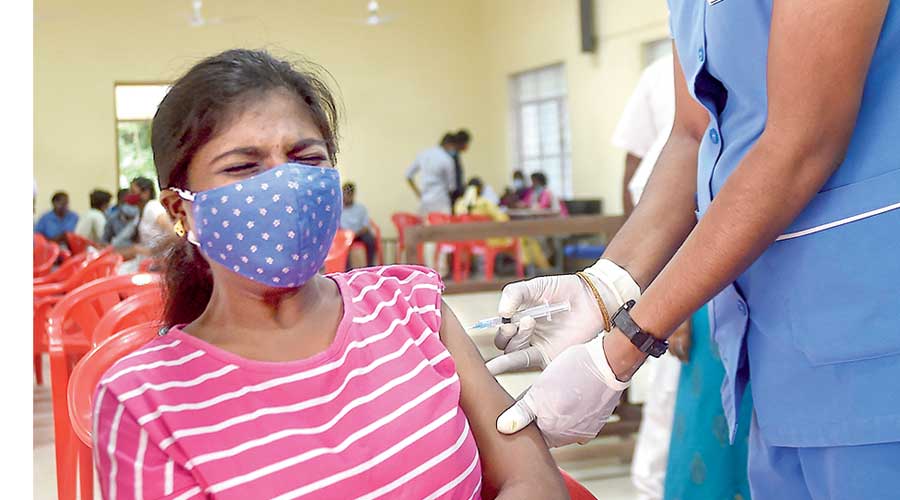Full vaccination significantly reduces the risk of severe Covid-19, but if inoculated people develop oxygen deprivation or respiratory distress, their odds of critical illness or death are similar to those of unvaccinated people, a real-world vaccine effectiveness study in India has suggested.
The study at the All India Institute of Medical Sciences, New Delhi, has indicated that the few vaccinated people who develop severe disease due to either old age or underlying chronic health disorders have a similar risk of death as unvaccinated persons.
The results, in line with earlier findings, show that full vaccination protects patients from oxygen deprivation or severe inflammation, needing steroids, requiring respiratory support, or dying from Covid-19 and underlines the need to expedite two full doses.
India’s vaccination campaign, since its start on January 16, has administered more than 650 million doses up to Tuesday, but only around 150 million people (16 per cent) of the estimated 943 million adults have been fully vaccinated.
The AIIMS doctors who tracked 1,464 unvaccinated, 231 partially vaccinated and 53 fully vaccinated Covid-19 patients admitted between April and June this year noted severe illness at admission in 48 per cent of unvaccinated, 40 per cent of partially vaccinated and 13 per cent of fully vaccinated.
Among subsets of patients, 61 per cent unvaccinated and 54 per cent partially vaccinated required respiratory support compared with 18 per cent of fully vaccinated. About 22 per cent of unvaccinated and 19 per cent partially vaccinated died, compared with 5.7 per cent of fully vaccinated.
Larger proportions of unvaccinated and partially vaccinated patients also had showed signatures of hyper-inflammatory responses compared with fully vaccinated patients, indicating that vaccination also reduces the risk of Covid-19-linked inflammatory responses.
But once a patient developed hypoxia, or oxygen deprivation, or acute respiratory distress syndrome, the odds of developing critical illness and death were similar to those of unvaccinated individuals, the AIIMS doctors said in their study.
The findings are consistent with a multi-hospital study in the US in June this year that had found that if hospital treatment is required in fully vaccinated patients, elderly patients with significant underlying health disorders remain at high risk for severe outcomes regardless of vaccination status.
“Vaccinated people are protected from severe disease, but it is not 100 per cent,” said Randeep Guleria, the AIIMS director. “If a few of them go on to develop severe disease, they may have a bad outcome. Other factors also contribute to the disease severity.”
The results show that two doses of vaccines protect patients from developing oxygen deprivation or severe inflammation, requiring ventilator support, or dying from Covid-19, in line with other studies underlining the benefits of full immunisation with two shots.
At least two other studies — one by Max Hospital doctors, the other by Sir Ganga Ram Hospital doctors — have over the past month highlighted the need to expedite two doses.
The current vaccination policy recommends a 12-week gap between the first and second dose of Covishield, one of the two primary vaccines currently used in India’s campaign. Sections of public health experts and doctors want the dose shortened.











